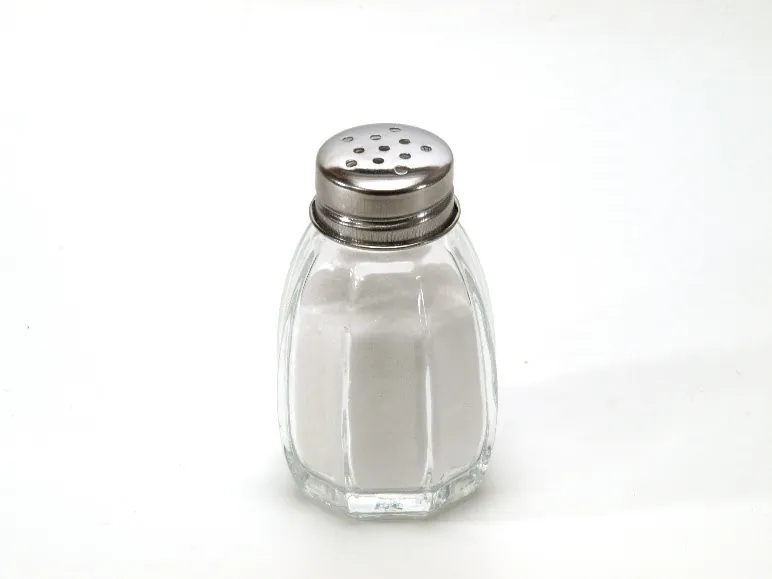Blog
Salt: Good or Bad?
Sarah Beleski a recent ASU Nutrition Student

The common kitchen staple, salt, otherwise known as sodium chloride, has brought up some conflicting research in the past few years.
If your doctor is recommending a lower sodium diet, then you should probably take your doctor’s advice. But is everyone supposed to follow a low-sodium diet?
As Americans, we have been conditioned to believe that salt is bad for us. One walk around the grocery store will reveal the low-sodium phenomenon that has swept over the entire country. And for those people who struggle with congestive heart issues and need to adhere to a low-sodium diet, the vast number of food products with reduced salt is beneficial for them.
However, it is important to remember that salt is a mineral and it is essential for our health. Jim White, a registered dietitian from Virginia, reminds us that sodium is necessary for maintaining our body’s fluid balance.1 The body does this by taking in sodium through food or drink and excretes it through sweat and urine.2 A healthy kidney will make sure there is a well-balanced sodium level regulating throughout our bodies.2 Too much sodium in the body is known as hypernatremia and too little sodium is referred to as hyponatremia.2
So how much sodium should we be consuming on a regular basis? According to the American Heart Association, 500 milligrams of sodium should be consumed daily in order for our bodies to function properly.1
White warns that if you are an athlete, clean eater, excessive sweater, or currently taking diuretics, you may not be getting enough salt.1 The main reasoning behind this is due to the excess excretion of sodium.1 For an athlete, excessive sweater, or someone taking diuretics, their body fluid levels could be unbalanced.1 For an individual eating an extremely clean diet, they may not be obtaining enough sodium from their food.1
Using a program such as My Fitness Pal or Lose It can both be beneficial in tracking your sodium levels.1 If you are someone who needs to consume more salt, I recommend doing so with caution. If you are someone who needs to lower your salt intake, here are some tips that may help with meal planning.
Helpful Tips:
- If you are worried about losing flavor with less salt, try using fresh herbs to enhance the natural flavors in the food.
- Purchase low-sodium products so that you can control the amount of salt that you add to your meals.
- Prepare fresh foods, rather than frozen foods. Frozen foods tend to lose some of their flavor when they are reheated.
For more recipes like this one check out our recipe section. Check out the produce section to find out what produce is in season.
References
Miller, A.M. (2016) 6 Reasons You May Need To Eat More Salt. U.S. News. Retrieved from https://health.usnews.com/health-news/health-wellness/slideshows/6-reasons-you- may-need-to-eat-more-salt.
Lewis, J.L. (2018) Overview of Sodium’s Role in the Body. Merck Manual Consumer Version. Retrieved from https://www.merckmanuals.com/home/hormonal-and-metabolic- disorders/electrolyte-balance/overview-of-sodium-s-role-in-the-body.
















